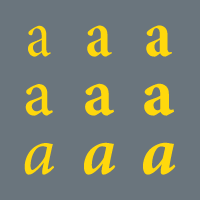 My sister, a engineering professor, is writing a book about how to encourage women to pursue engineering. She plans to self-publish the book through Lulu, since the print on demand strategy makes perfect sense for the specialized audience for such a book. And because I’ve worked in publishing, she asks me a lot of questions about layout and format and marketing—topics that are, sadly, way out of my field of expertise. In self-publishing, everything is up to the author: the size of the book, binding type, even the font. That can make for a bewildering self-publishing experience, and the best that authors can do is look to other books for examples.
My sister, a engineering professor, is writing a book about how to encourage women to pursue engineering. She plans to self-publish the book through Lulu, since the print on demand strategy makes perfect sense for the specialized audience for such a book. And because I’ve worked in publishing, she asks me a lot of questions about layout and format and marketing—topics that are, sadly, way out of my field of expertise. In self-publishing, everything is up to the author: the size of the book, binding type, even the font. That can make for a bewildering self-publishing experience, and the best that authors can do is look to other books for examples.
Recently, The Font Feed counted up the top ten fonts used by book design winners (via). Here are the main contenders:
1. Minion
2. ITC New Baskerville
3 & 4. FF Scala and FF Scala Sans
5. Adobe Garamond
 All of these fonts are clean and sophisticated—unlike that bane of font-philes, Comic Sans, which to many designers screams “amateur.” In fact, the font is so reviled that there’s even a website devoted to it: bancomicsans.com
All of these fonts are clean and sophisticated—unlike that bane of font-philes, Comic Sans, which to many designers screams “amateur.” In fact, the font is so reviled that there’s even a website devoted to it: bancomicsans.com
But is Comic Sans really such a poor choice for self-published books? On Salon, Laura Miller argues that “hideous” fonts like Comic Sans may actually help readers understand the text better:
A recent study out of Princeton, and brought to wider attention by Jonah Lehrer at Wired.com, suggests that ugly, irregular fonts can boost the amount of information readers retain from a text, while easy-to-read type is more likely to just sort of slide out of their minds. The study, titled “Fortune Favors the Bold (and the Italicized): Effects of Disfluency on Educational Outcomes,” found that people remembered more from worksheets and PowerPoint presentations when they were composed in a hot mess of hated fonts like Monotype Corsiva, Haettenshweiler and the dreaded Comic Sans Italic.
The hypothesis is that the added difficulty in reading these texts forces more cognitive engagement, which leads to greater comprehension.
So what’s a would-be self-published author to do?

